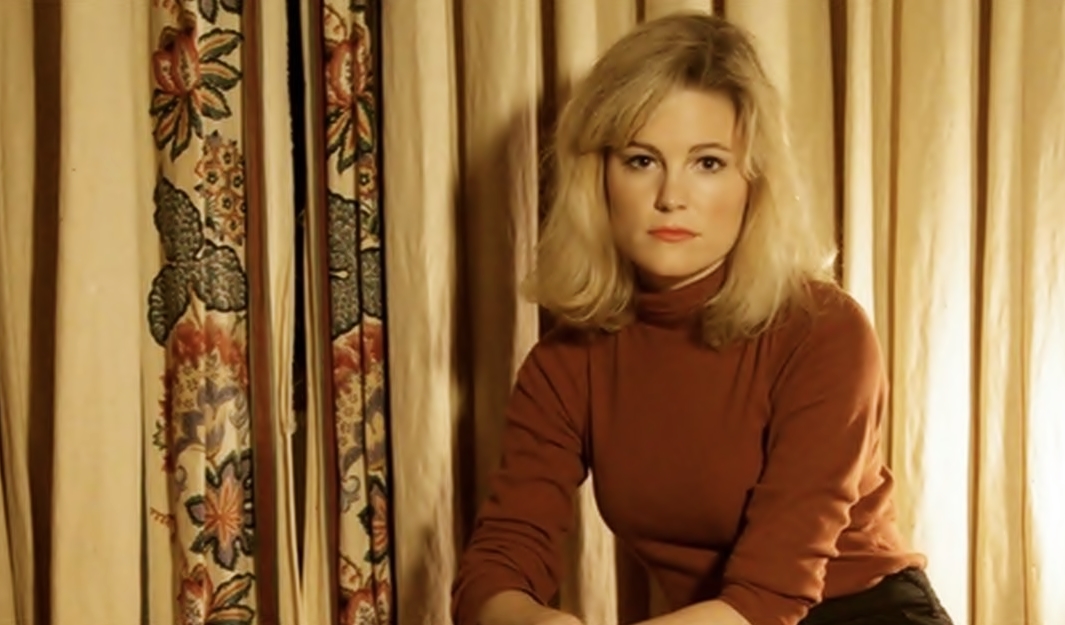I have a busted and broken relationship with the concept of the singer-songwriter. You can trace it back to my history with Contemporary Christian Music (CCM). A genre focused on the substance of the lyrics at the expense of the musical quality. When a subculture encourages listeners to parse the nuances of someone’s words to discern whether or not that person is a good Christian, you don’t get art. You get religious treatises set to generic folk and pop melodies in hopes of selling records.

I spent nearly 15 years deeply immersed in that world, including six years working in a Christian bookstore. When I finally emerged from that cocoon, I stopped caring about the words in songs. Sure, I enjoyed a good voice, but I viewed it as a musical instrument on equal footing with the rest of the band. The lyrics had to be extra-special for me to care about them, and even then, I opted for the vibes and mood created by the music.
Eventually, the words became window-dressing.
That perspective affected what I listened to and how I wrote about music. In my rejection of the words-first approach, I’d swung too far in the other direction to where I was completely ignoring a fundamental element of modern music.
It all came to a head a few years ago. I was tired of singing lullabies to my daughter at night. It wasn’t totally because the songs were annoying – though many were – but I wanted to widen her musical education. I soon realized that, while I loved talking and writing about my favorite artists, albums, and songs, I couldn’t sing them to my kid. I’d spent the prior decade absorbing heaps of music without retaining any of the lyrics.
So, I started looking for music that my kid and I could sing around the house. Songs that my lyrics-first wife would enjoy when she was working. Stuff that the whole family would dig, especially on long road trips when my kid got tired of the games on her pad. Artists who were good storytellers but also knew how to craft catchy tunes that didn’t always follow a formula.
And because of that new approach, I can appreciate and celebrate the music of Anne Freeman.

On her debut full-length, entitled Keep It Close, this Mississippi native has crafted ten standout examples of vintage songcraft. Comprised of equal parts ‘60s pop, ‘70s folk, and ‘90s indie, the album pulses with up-tempo verve, crisp sonics, and stellar production. Freeman’s lovely alto hearkens to Lucinda Williams, Neko Case, and Sheryl Crow, while the rollicking tunes evince Gin Blossoms, Harry Nilsson, and Herman’s Hermits. Released on Muscle Beach Records, it’s a kinetic and all-around enjoyable listening experience rooted in conversational warmth.
Freeman represents an idyllic form of singer-songwriter, as she conveys profound maturity and authenticity. Whether she’s singing about the joys of a love gained or the heartbreak of one she lost, she makes the listener feel like they’re the only person in the room. Her unadorned deliver connects effortlessly, as her voice is rarely double-tracked or complemented by background vocalists. The songs are confessional, but never maudlin, resulting in slice-of-life tunes that are approachable.

The album kicks off with “City Watched Me Burn,” a vivacious bit of ‘90s Midwestern pop. Featuring the chorus of “Don’t you want to, you don’t have to take my hand and get it over with now.” On “I Don’t Wanna Want You,” we’re treated to tasty alt-country grooves and this delicious line: “This is a lesson I won’t learn. You’re the last thing I deserve.” Standing at the center of it all, the sultry ‘70s AM pop of “When I’m a Wreck” evokes a woman calling out for her lover in the second verse:
“Holding back. Heart attack. Swallowing this pain. If you were here, it’d be clear. I wouldn’t have to explain.”
With “I’ve Got a Knife,” Freeman’s aching voice rings out over peppy folk-pop that’s led by the sentiment of “Take this stance before the dance. Hold my purse ‘cause you’re the worst.” Closing out the project, “Waiting on a Sign” hearkens back to sentimental ‘60s country, complete with the relatable lyric, “I’ll smoke all of your cigarettes. Don’t say anything we might regret.”

The impeccable musicianship on display gave me life. The jangly guitars possess only the slightest possible crunch, creating a jaunty ambiance packed with attitude. The strong drumming and luscious bass work form a rock-solid foundation for the excellent pop-rock goodness. Additionally, strings, keys, horns, and organ meander appear in the mix at the right time and with the right texture. The tight licks and clever chord progressions showcase a thoughtful artist who isn’t afraid to have fun with her music.
Throughout Keep It Close, I’m enthralled by the subtle sharpness of these reinvented torch songs. The lyrics strike a keen balance between brush-offs, come-hithers, and pure romanticism that’s fresh and classic. Yes, you can find plenty of bittersweet sentiments and pointed turns-of-phrase, but they blissfully lack irony, sarcasm, and angst. Anne Freeman prefers to create music that feels lived-in, intimate, and soaked in sincerity – and our ears are better for it.


